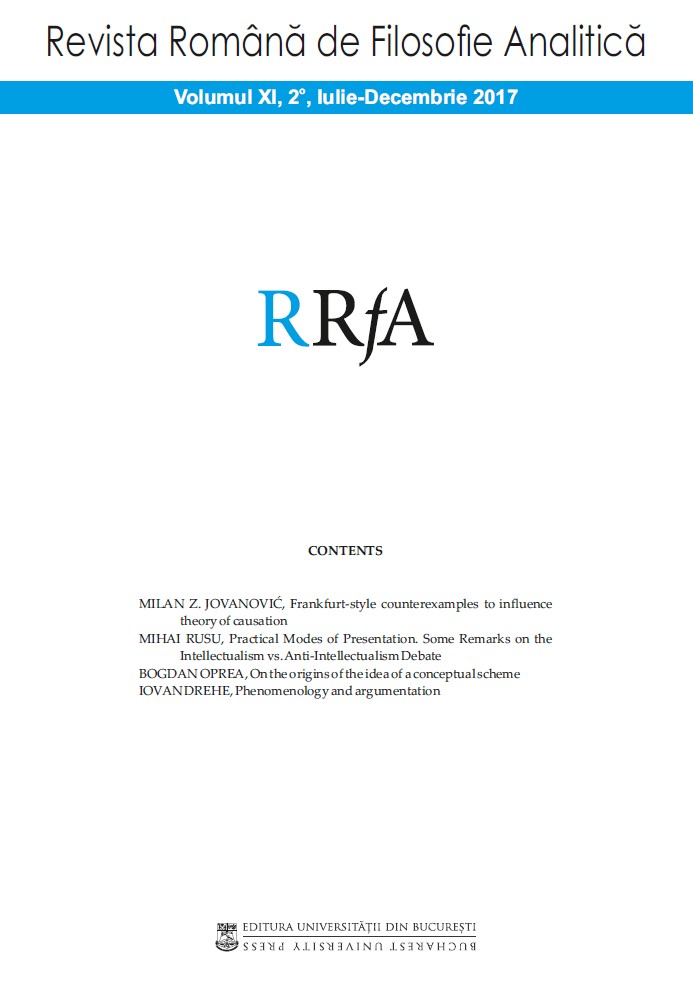Phenomenology and argumentation
Phenomenology and argumentation
Author(s): Iovan DreheSubject(s): Analytic Philosophy, Phenomenology
Published by: Editura Universităţii din Bucureşti
Keywords: phenomenology;argumentation;
Summary/Abstract: Phenomenology and argumentation theory do not seem to be the closest of disciplines. However, there seem to be at least one exception among argumentation scholars: Charles Arthur Willard. The main focus of the second of Willard’s books on argumentation, A Theory of Argumentation (1989) is the agent, argumentation being considered in the context of social interaction and communication, with an important emphasis given to the mundane and everyday life argumentative behavior – Willard taking a somewhat non-orthodox stance in contrast with the majority of argumentation theorists in terms of, for instance, relevance given to models such as Toulmin’s. One of the influences on Willard was Alfred Schütz, who is widely known for is works in social phenomenology. In the present paper, I aim to discuss some of the specificities of Willard’s view on argumentation from the angle of Schütz’s influence. For example, social interactions of an argumentative kind should be considered in light of what is called ‘intersubjectivity’, ‘joint awareness’ or ‘reciprocity of perspectives’, these having a hierarchical and multileveled nature. Considering these, I will end the paper by discussing the possible consequences of a phenomenological import in argumentation theory
Journal: Revista Română de Filosofie Analitică
- Issue Year: 11/2017
- Issue No: 2
- Page Range: 57-68
- Page Count: 12
- Language: English

